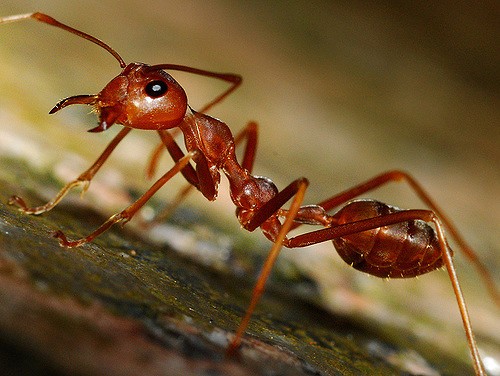By Dane Lorica, | November 16, 2016

The newly discovered antimicrobe called Selvamicin has antifungal properties. (Flickr)
At a time when superbugs are invading the world, the discovery of new antibiotics is essential to kill resistant microorganisms. In Costa Rica, a new antimicrobial has been found from ant bacterium.
Researchers from the University of Costa Rica, Wisconsin University, and Harvard University discovered a new agent called "Selvamicin" which has antifungal properties. It was acquired from a bacterium that affects ants from genus Apterostigma. These ants perform cultivation of fungi and feed from them later on. Since many parasites attack the food source, the bacterium serves as a protector.
Like Us on Facebook
The study took place in La Selva in Sarapoqui Heredia. The biological station receives 125 to 150 projects from approximately 300 participating investigators annually. The discovered molecule can stop the growth of fungal species Candida albicans which can affect the vagina, mouth, intestine, and skin of humans. This organism can cause food intolerance, bad digestion, irritability, diarrhea, headaches, memory loss, and even depression.
Dr. Fernando Garcia, the vice-chancellor of the University of Costa Rica, said that "the resistance to anti-fungal drugs is a global public health problem, and the search for new molecules with these properties is essential and urgent." The discovery also highlights the ecological richness of Costa Rica.
The information about the discovery of Selvamicin was published in the Proceedings of the National Academy of Science of the United States of America. The ant bacterium-related antibiotic will be included in the antifungal agents group of amphotericin B and nystatin A1.
-
Use of Coronavirus Pandemic Drones Raises Privacy Concerns: Drones Spread Fear, Local Officials Say

-
Coronavirus Hampers The Delivery Of Lockheed Martin F-35 Stealth Fighters For 2020

-
Instagram Speeds Up Plans to Add Account Memorialization Feature Due to COVID-19 Deaths

-
NASA: Perseverance Plans to Bring 'Mars Rock' to Earth in 2031

-
600 Dead And 3,000 In The Hospital as Iranians Believed Drinking High-Concentrations of Alcohol Can Cure The Coronavirus

-
600 Dead And 3,000 In The Hospital as Iranians Believed Drinking High-Concentrations of Alcohol Can Cure The Coronavirus

-
COVID-19: Doctors, Nurses Use Virtual Reality to Learn New Skills in Treating Coronavirus Patients







